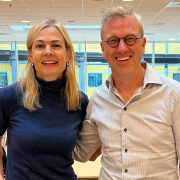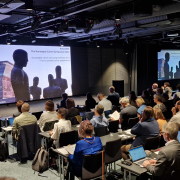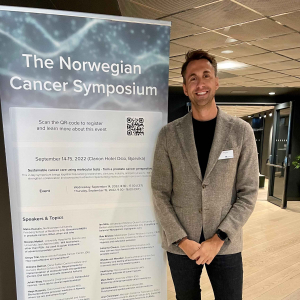Nordic Life Science Days 2022
Olso Cancer Cluster joined NLSDays 2022 to strengthen Nordic ties in life science, healthcare and oncology.
Nordic Life Science Days 2022 were held on 28-29 September in Malmö, gathering the Nordic life science community for partnering opportunities, educational sessions and mingling in the exhibition area.
Advancing Norwegian life science
Since 2015, Oslo Cancer Cluster has coordinated the joint booth Norway for Life Science, promoting the Norwegian healthcare and life science industry. This year, the ten Norwegian life science partners came together once again in the exhibition area to make new contacts and reinforce bonds across borders.
The Norwegian booth included Oslo Cancer Cluster, UiO Life Science, Aleap, Norway Health Tech, Nansen Neuroscience Network, The Life Science Cluster, Innovation Norway, Legemiddelindustrien (LMI), Norwegian Research Council, the Centre for Digital Life and Inven2.
Vaccine insights
Oslo Cancer Cluster co-hosted one of the super sessions in the NLSDays programme, together with the Life Science Cluster. The topic was Vaccine Crosslinks: From cancer to COVID and included presentations from key experts in vaccine development from the Nordics. Mikael Engsig, CEO of Nykode Therapeutics, commented:
“Nykode Therapeutics was founded on the basis of our unique immunotherapy technology platform and its properties to up or downregulate specific immune responses. Today, we strive hard to put the platform to its full use across several therapeutics areas with unmet medical needs such as oncology, infectious diseases and autoimmune diseases.”
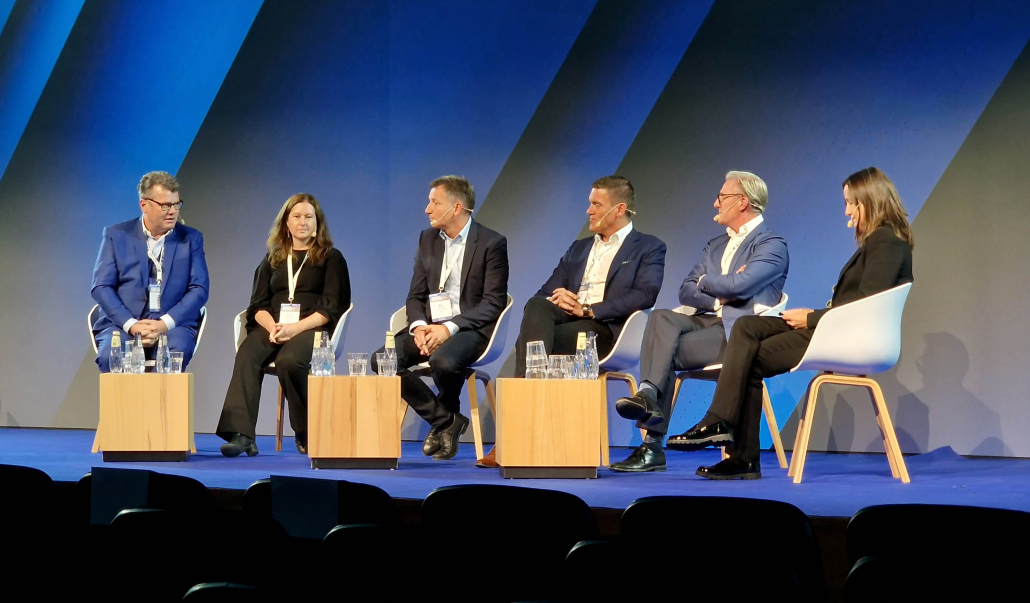
Immune links between cancer and infectious diseases were discussed by the panelists during super session 3. Photo: Dave Tippett / Oslo Cancer Cluster
The speakers included: Ms. Eleanor Malone (Editor in Chief, Citeline), Dr. Heinz Lubenau (Chief Drug Development Officer, NEC OncoImmunity), Mr. Michael Engsig (CEO, Nykode Therapeutics), Dr. Holger Kissel (Vice President Business Alliances, BioNTech), Dr. Carl Kilander (Partner, HealthCap), Mr. Mike Ryan (Executive Vice President Europe, Eversana) and Dr. Gunnveig Grødeland (Senior Scientist and Research Group Leader, University of Oslo).
Eversana and Citeline kindly sponsored this session.
Our members on the stage
OncoSyne and DoMore Diagnostics, two companies from the Accelerator programme in Oslo Cancer Cluster Incubator, were selected as “Rising Stars” at this year’s NLSInvest. The two companies pitched to an audience of global investors, along with start-up companies from across the Nordics.
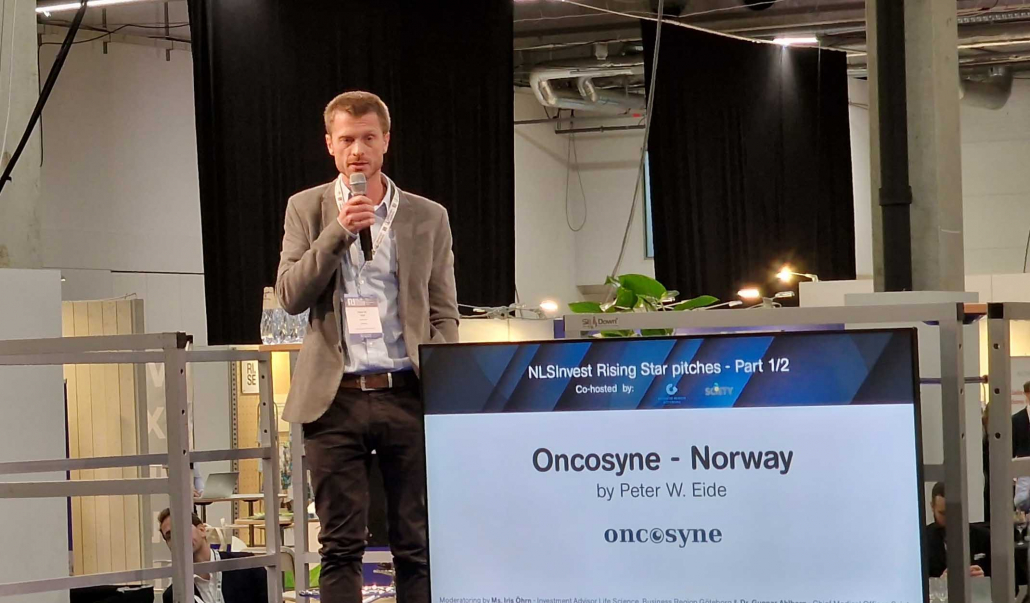
Peter W. Eide, CTO in Oncosyne, pitched at NLSInvest. Photo: Dave Tippett / Oslo Cancer Cluster
“We saw NLSDays as an excellent opportunity to meet new collaborators and promote the company. As such, the conference was very useful. We have a host of promising follow-up meetings, and being selected for pitching with other NLSDays Rising Stars was a nice recognition of our achievements and ambitious growth targets,” said Peter W. Eide, CTO in OncoSyne.
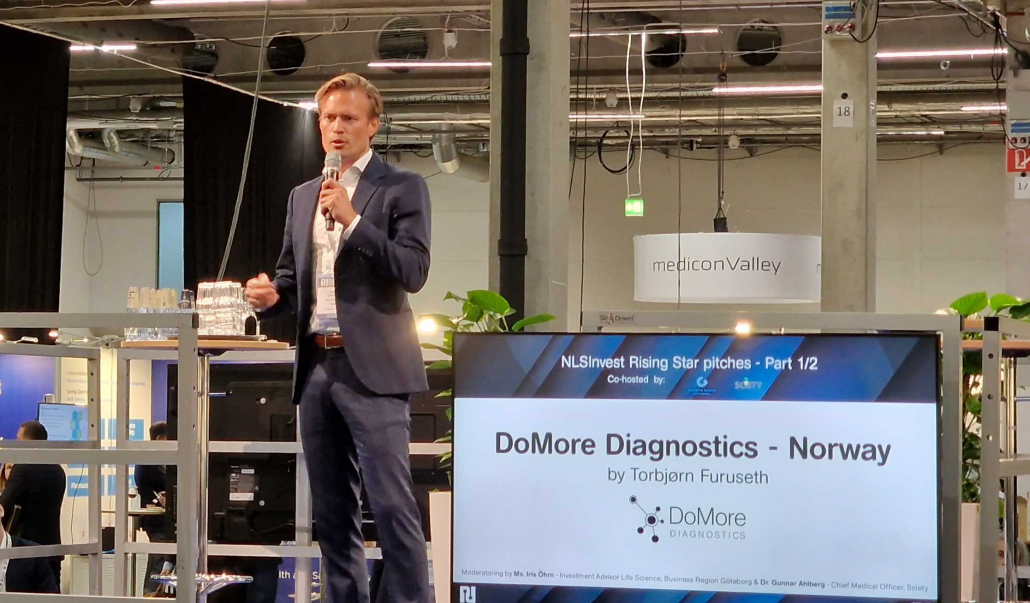
Torbjørn Furuseth, CEO and co-founder of DoMore Diagnostics, presented the company to the NLSDays audience. Photo: Dave Tippett / Oslo Cancer Cluster
“It is great to see that NLSDays has become such a large and important event, gathering so many early-stage companies, investors and others. We were happy for being selected as one of the Rising Stars and got the opportunity to pitch our company. This event is a great place to network and we had several good meetings,” said Torbjørn Furuseth, CEO and co-founder of DoMore Diagnostics.
Read more about the Rising Stars here.
In addition to our “Rising Stars”, several members of Oslo Cancer Cluster held company presentations during the NLSDays programme.
Gjest Breistein, CFO of Lytix Biopharma, presented the company’s vaccination technology platform for treatment of cancer. Kerstin Jakobsson, CEO of Kongsberg Beam Technology, presented the company’s proton radiation therapy devices for cancer treatment. Bjørn Klem, CEO of Adjutec Pharma, presented the company’s novel solutions against antibiotic resistance.
Sparking innovation
The NLSDays Fireside Chat with SPARK took a deep dive into how the SPARK programme has been set up at universities in the Nordics.
“There is a great untapped potential in research being done at the universities to be transformed into innovative solutions that create value for society. This isn’t unique for Oslo, or even for Norway, but also a challenge for universities across Europe. When Jutta Heix from Oslo Cancer Cluster introduced us to the SPARK concept, we saw it was a good match for UiO Life Science and decided to sponsor it. It has had great success at Stanford University and there have been over 60 programmes established globally,” said Morten Egeberg, Leader of SPARK Norway at the University of Oslo.
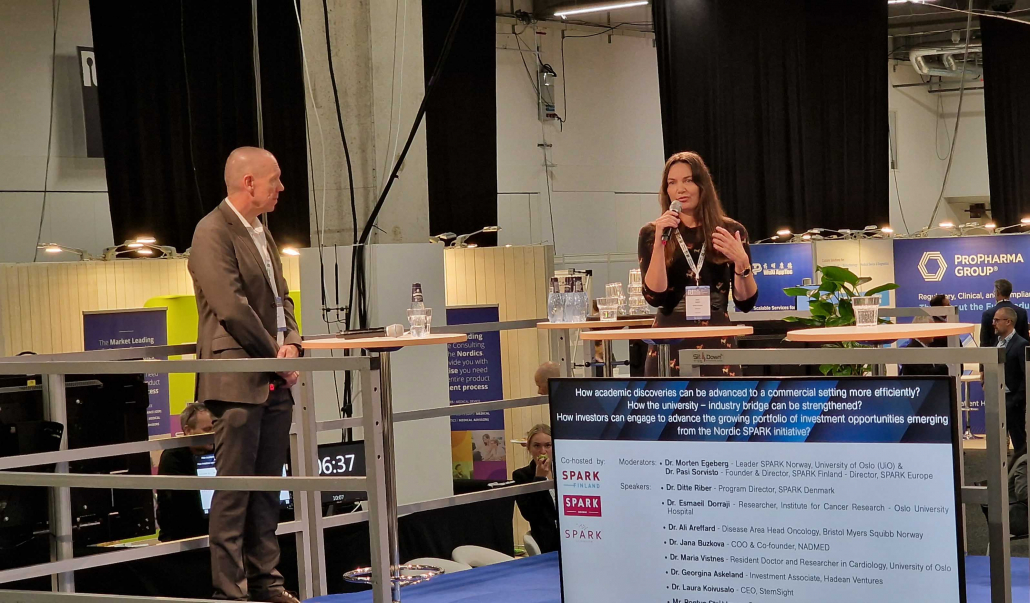
Morten Egeberg, Leader of SPARK Norway, moderated the SPARK Fireside Chat at NLSDays 2022. Photo: Dave Tippett / Oslo Cancer Cluster
The so-called “Sparkees”, academic innovators who have undergone the SPARK programme, had the opportunity to meet with investors at NLSDays. They were prepared beforehand about what to expect from these partnering meetings and how to build international networks.
“The focus at this year’s NLSDays was to build a closer collaboration between the SPARK programmes in the Nordics. The programmes in Norway and Finland are already well-established, and Denmark is currently setting up their programme. Our mentors all have relevant backgrounds and industry experience. The aim now is to share mentors across borders, so the ‘Sparkees’ can gain access to a wider network of expertise,” Egeberg added.
Thank you to everyone who took the time to visit our booth, schedule partnering meetings with us and join our sessions. The next Nordic Life Science Days will take place in Copenhagen on 29-30 September 2023. We look forward to seeing you there!

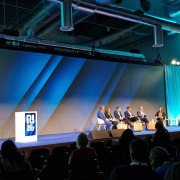
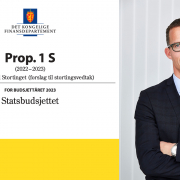 Oslo Cancer Cluster
Oslo Cancer Cluster